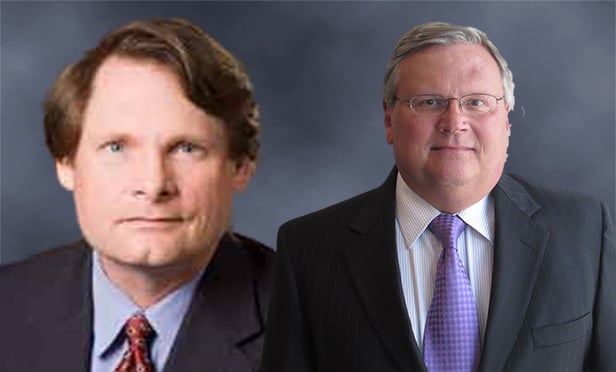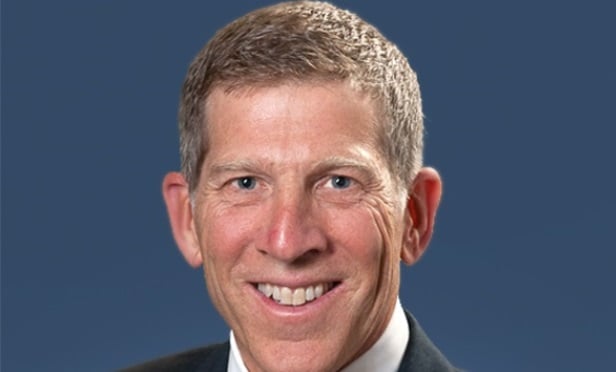SAN DIEGO-Healthcare’s strong track record as a sector in which to invest should continue, according to panelists at a general session on healthcare led by Ross Nussbaum, managing director of UBS, during this week’s REITWorld trade conference here. Inexpensive debt and good fundamentals, combined with the resolution of certain macro factors, continue to strengthen the sector, even in the midst of an economy still struggling to recover.
Panelist Debra Cafaro, chairman, president and CEO of Ventas Inc., said President Obama’s reelection is a net positive for healthcare providers and REITs since there will be less pressure on government reimbursements, although Democratic administrations generally undergo higher fraud scrutiny than Republican ones do. The rest of the panel, which included George Chapman, chairman, president and CEO of Health Care REIT Inc., and James Flaherty, chairman and CEO of HCP Inc., were generally positive about the president’s second administration, although Flaherty claimed he was “tentative.”
With the Affordable Care Act driving consolidation, Flaherty compared the current healthcare REIT scenario to “the third inning of a nine-inning baseball game,” with more transactions to come. “Each of us took advantage of healthcare growth,” said Chapman. He added that “a lot of operators will need to consolidate” in order to meet the mandates of the ACA.
As GlobeSt.com previously reported, as much controversy as it stirred up before the election, healthcare reform won’t have as much of an impact on the healthcare real estate industry as the hype made it seem. Rather, it’s the innate changes occurring in the medical industry itself that are driving the trends in space usage, according to panelists at last week’s RealShare Medical Office Buildings trade conference.
Also, Gordon Gerson of Gerson Law Firm APC here recently told GlobeSt.com, “It’s clear that we have a president who has an agenda. That may not be the agenda that [some CRE professionals] wanted, but it’s the agenda that they know, and now they know what they’re going to need to do. They know that there are going to be changes in the capital-gains tax structure from Obama, which is a problem for the CRE industry, and those looking at significant capital gains under the new legislation would be more likely to sell now.” Gerson added that REIT investors believe Obama’s reelection will lead to inflation, and since rents go up in an inflation cycle, REITs would be a good investment.
During the panel, Nussbaum commented that the consolidation wave in healthcare may take three to five years or more to complete, and Cafaro commented that assets will flow to the most efficient owners. “The big secular trends will continue to play out.”
Chapman defended the flurry of healthcare REIT transactions in all the panelists’ firms by saying, “We have had great spreads and unprecedented opportunity. We’ve chosen to increase private-pay up to 85% to avoid having to discuss reimbursements because analysts don’t want to deal with it.”
When discussing skilled-nursing reimbursements further, Chapman added, “I really do believe skilled nursing is extremely valuable,” even though guaranteed government sponsorship may be reduced for this healthcare area, as GlobeSt.com previously reported. “We could see something like we’ve seen in multifamily in skilled nursing,” added Cafaro. “We will likely always have some investments in the skilled-nursing business; it’s here to stay.”
When Nussbaum asked the panel if diminishing coverage rates for doctors impact skilled-nursing valuations, Flaherty commented that cap rates are the responsibility of the tenant, not the owner. Cafaro commented that if NOI drops, that could be a game-changer, but that will become clearer in the coming quarter, and Nussbaum said now is an “opportune time to invest in this sector.”
Nussbaum then asked the panel if assisted-living real estate is the singular best growth story in the industry, and Cafaro stated that private-pay senior living has the best supplied performance fundamentals of the healthcare sector: “We’re seeing 10% year-over-year growth in these assets.” The downside is that the sector is demographic driven, but given the proliferation of aging baby-boomers needing healthcare, the sector is on a growth trajectory for the foreseeable future. “We’ve created excellent outsize returns for our shareholders” in private-pay senior living.
When discussing RIDEA vs. triple-net structures, Chapman said his firm wouldn’t base the deal on the structure but rather on whether or not it would want to do business with a particular operator. “That’s the key variable—not the structure. Do you want to make an investment with that operator” is the criterion.
Flaherty commented that the healthcare industry an eye toward positioning real estate to be aligned with acute-care hospitals, creating clusters where none exist, and Chapman said, “We’re bullish on MOBs—they’re a very stable part of the healthcare delivery system.” He added that his firm is investing in larger MOBs and that more of them are being built out in the suburbs rather than on hospital campuses or in major cities. “They key is affiliation with a great system” in the new healthcare environment—not necessarily being located close to a hospital.
Want to continue reading?
Become a Free ALM Digital Reader.
Once you are an ALM Digital Member, you’ll receive:
- Breaking commercial real estate news and analysis, on-site and via our newsletters and custom alerts
- Educational webcasts, white papers, and ebooks from industry thought leaders
- Critical coverage of the property casualty insurance and financial advisory markets on our other ALM sites, PropertyCasualty360 and ThinkAdvisor
Already have an account? Sign In Now
*May exclude premium content© 2024 ALM Global, LLC, All Rights Reserved. Request academic re-use from www.copyright.com. All other uses, submit a request to [email protected]. For more information visit Asset & Logo Licensing.








